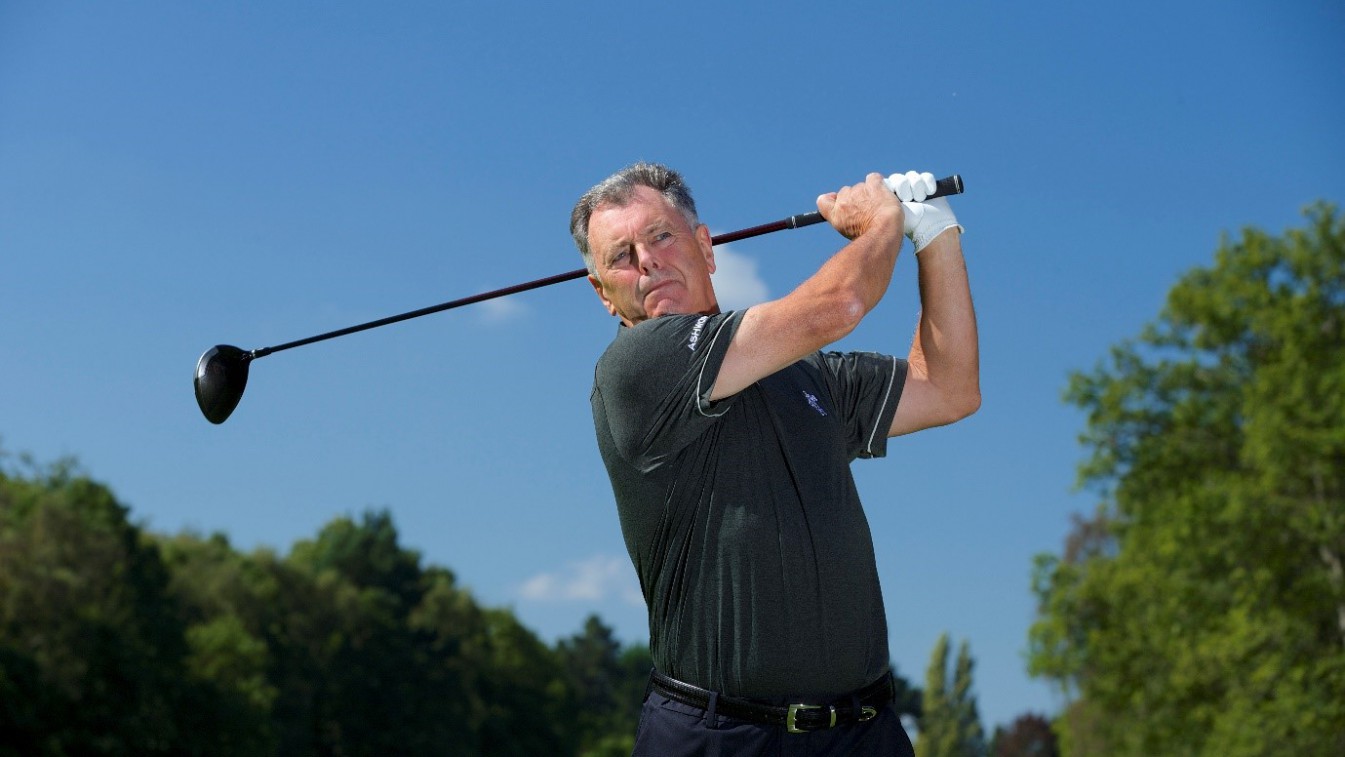
INTERVIEWER
In 1969, you became the youngest man to represent Great Britain in the Ryder Cup at the time. How did this accolade make you feel – did you feel a sense of added pressure or did it spur you on?
BERNARD GALLACHER
I felt an enormous sense of pride, but at the same time I tried not to think too much about it. There were many brilliant players before me who would’ve been called up at the same age as me, had it not been for the rules around PGA membership.
To play in the Ryder Cup, you had to have been a PGA member for five years, but they got rid of this rule, and I was the beneficiary of this change. I came along at just the right time.
When Jack Nicklaus played in the Ryder Cup in 1969, he was 29 and he’d already won a few Majors, and yet this was his first Ryder Cup, because the Americans had adopted a similar rule.
INTERVIEWER
Ahead of the 1969 Ryder Cup, you said: “I’m not awed by the Americans. I think maybe they should be awed by me.” Was this a deliberate tactic to unsettle them and how do you think this worked to your advantage?
BERNARD GALLACHER
I can’t remember saying that, but this quote was probably taken out of context! I never tried to make it personal between the players, I always felt my job was to play the golf course. The quote was probably more of a reference to the Great Britain and Ireland team in 1969, which was very strong.
What gave us a big boost was that we had Tony Jacklin in the side. He was a British Open Champion and so we felt like we had the world’s best golfer in our team, despite the fact America had the likes of Jack Nicklaus, Lee Trevino and Billy Casper. Tony was probably the best golfer in the world for a couple of years during the late 60’s and early 70s.
INTERVIEWER
You were most frequently paired with Brian Barnes, who in 1975 beat Jack Nicklaus twice in one day in singles match play. What was Brian like to play alongside?
BERNARD GALLACHER
Brian had a wonderful long game and I had a good short game, so we dovetailed quite well. Brian’s father-in-law was the 1951 Open champion Max Faulkner, who was my coach. Brian and I used to practice and play together with Max, so we knew each other’s game intimately.
In 1975 at Laurel Valley, Jack Nicklaus was at the height of his powers, so it came as such a shock to the American public that possibly the greatest golfer who ever lived could be beaten on American soil.
Brian beat Jack in the morning, and the America captain Arnold Palmer said to our captain Bernard Hunt: “Jack wants to get his revenge on Brian in the afternoon.” Both captains contrived to pit Brian against Jack again, because Jack was so determined to beat him. Brian then went and beat him again in the afternoon!
Brian is one of the few people in the world who can say they’ve beaten Jack Nicklaus twice in one day. Beating Jack once in your career is enough of an achievement!
INTERVIEWER
Speaking of which, is there a Ryder Cup moment from your playing days that most sticks out in your mind? The comfortable victory against Jack Nicklaus in 1977 must be a highlight?
BERNARD GALLACHER
Beating Jack was a great personal triumph. I thought I was going to get hammered, and I was a bit jumpy, but Jack’s got such a human touch to him that he calmed me down. He shook hands with me, wished me a good game and gave me putts on the green!
This was all a tremendous surprise to me because, in the Ryder Cup, it’s very ruthless. It summed up how great a sportsman Jack was. I got off to a flying start – I was four up after four holes and then I just hung on! It was nervy to say the least.
Another match that really sticks out is my victory against Lee Trevino in 1969. That match almost went to the wire and it was such a huge relief to win it. Our captain Eric Brown told me that a victory was crucial if we were going to win the Ryder Cup. I really raised my game in that match and reputations went out the window.
There was also my morning singles victory against Lanny Wadkins back in 1979. Lanny had never lost a foursome, four-ball or single match in the Ryder Cup up until that point. John Jacobs, who was the Europe team captain, said to me “I’m putting you in an important position and you’re up against a good player, but you’ve got enough in your game to beat him.”
That gave me a great deal of confidence and I raised my game again. I got up early on and never looked back, beating him 3 and 2. That was a real standout victory on a personal level.
INTERVIEWER
As you’ve alluded to, the Americans had some incredible golfers at that time. Do you think was the main reason Europe didn’t win a Ryder Cup between 1957 and 1985?
BERNARD GALLACHER
I think it was a combination of not having enough strength in depth and having some bad luck along the way.
In 1969, we had a fantastic team led by Tony, which had a good balance of experience and youngsters coming through. But after that, I don’t feel we had the strength in depth to match the Americans.
There were imperious for so many years. Lee, Jack and Billy all led by example, then along came Tom Watson, Lanny Wadkins, Tom Kite and Hale Irwin – the names just roll off the tongue. Competing with that elite level of golfers was incredibly difficult and I think that’s why we lost to them consistently.
When we became a European side in 1979, we were able to get Seve Ballesteros on our team, which helped us massively in the long run. It didn’t happen for us straight away, however. We struggled in 1979 at The Greenbrier – Seve played with Antonio Garrido but they lost a few matches and Seve didn’t have a great Ryder Cup.
In the 1981 Ryder Cup, Seve didn’t play because he was in an ongoing dispute with the European Tour over money and America probably had its greatest ever side. They were led by Nicklaus and Trevino and contained the likes of Watson and Raymond Floyd. It was packed with champions and we acknowledged at the time how fine a team it was.
The wind of change started in 1983 when Tony became Europe’s captain. We ran America very close at Palm Beach Gardens and only lost by a point. That showed very clearly that Europe had the momentum and some amazing players coming through.
The fact that these players were led by the best player in the world in Seve meant it was only a matter of time until we beat the Americans. When we did finally beat them in 1985, it was by some distance.
Specialist golf insurance through Golf Care
Before heading out to the course, you may want to think about protecting yourself and your equipment with specialist golf insurance.
With Golf Care, policies include Equipment Cover up to £7,500 and Public Liability up to £10m, so you can play with peace of mind.
Get an instant online quote today.
Get a quick quote for Golf Insurance
Get A Quote